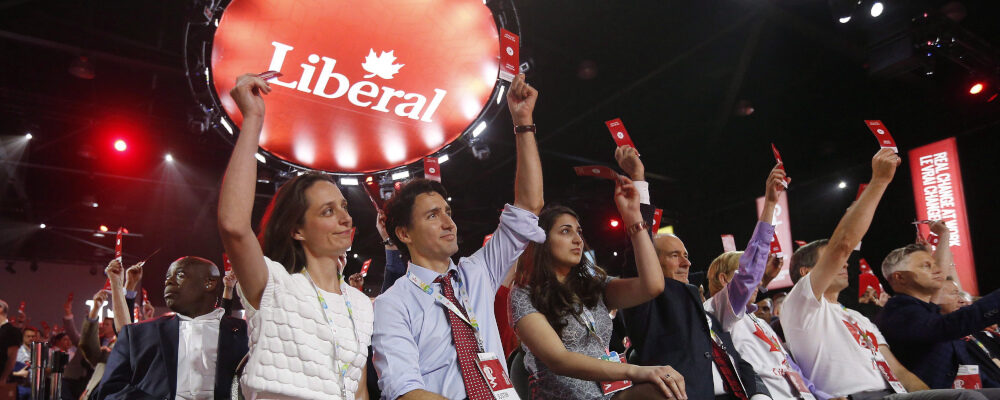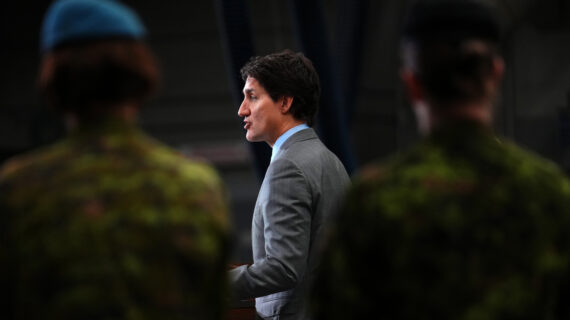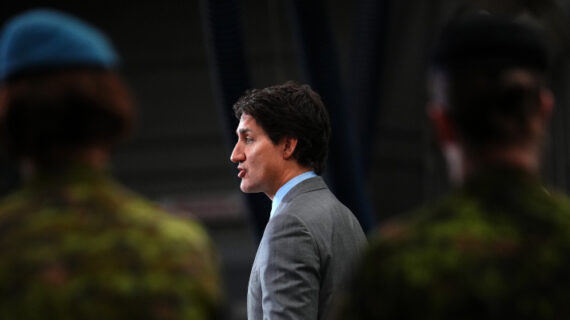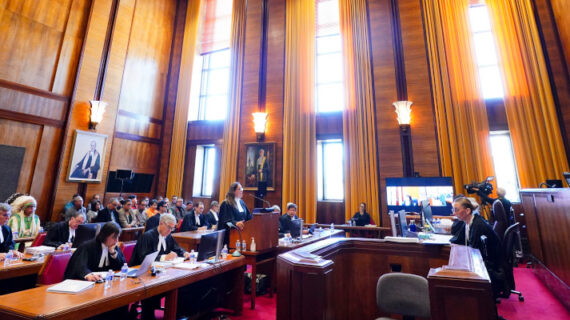A slate of four federal byelections turned out roughly according to expectations on Monday, although the Conservatives got a mild scare in a riding that has traditionally been a stronghold for the party.
Arpan Khanna won in Oxford, which the party has held for 20 years, and Branden Leslie won in Portage-Lisgar for the Conservatives. Ben Carr won in Winnipeg South Centre and Anna Gainey won in Notre-Dame-de-Grâce—Westmount for the Liberals.
That means there will be no change in the party seat count in the House of Commons when four new MPs take their seats.
Here at The Hub, we’ve assembled a few of our contributors for their instant reactions to the byelections and to explain what lessons, if any, we can learn from them.
Millennials are starting to change the conversation
By Sean Speer
One topic that I’ve written a bit about in the past couple of years is the growing signs of generational change in Canadian politics in general and Conservative politics in particular. This week’s byelections in Manitoba, Ontario and Quebec point firmly in this direction.
The four winning candidates are aged 43 years old and younger. Conservatives Arpan Khanna and Branden Leslie and Liberal Ben Carr, the winners in Oxford, Portage-Lisgar and Winnipeg South Centre, respectively, are actually younger than me.
It may be evidence that generational change is durable and increasingly multi-partisan. The implications for our policy and politics shouldn’t be underestimated.
They reflect a broader demographic change in which millennials are now the fastest-growing generation and are projected to be the largest by the end of the decade. That should in theory grant them greater influence over our politics. Their growing place in elected life is proof that they’re indeed starting to translate their demographic clout into political power.

One consequence is we should see greater attention paid to the issues besetting younger Canadians including housing affordability and delayed family formation. That would be a positive development.
We may also however get greater political polarization rooted in debates about identity, gender and sexuality, and race. Younger generations are far more steeped in today’s identity politics on campus and within companies and its attendant backlash. The result could therefore be a subordination of the issues that have previously dominated our politics (such as national unity or public finances) in favour of these more fundamental yet divisive questions.
The key point for now though is if one is concerned about the threat of generational fault lines in Canadian society, then the byelection results and the broader trend of generational change in our politics should be viewed positively.
Whether the long-term consequences for Canadian policy and politics are ultimately positive will be partly determined by the four new members of Parliament elected this week.
A crushing loss for the People’s Party of Canada
By Royce Koop
In Portage-Lisgar, PPC leader Maxime Bernier framed the by-election as a struggle for the heart and soul of the right in Canada. Unfortunately for him, the Conservatives agreed and mobilized to meet the challenge, as Tory campaigners from Winnipeg and beyond journeyed to southern Manitoba to help bury the PPC leader.
Ultimately, Bernier received only 17 percent of the vote to Conservative Branden Leslie’s 65 percent. This is a crushing result that Bernier nevertheless valiantly tried to spin as a moral victory.
Bernier undoubtedly earned some media attention and likely some fundraising dollars from his run. But at what cost? Small parties and independent candidates, in general, perform better in byelections than in general elections. But Bernier ended up scoring substantially fewer votes than his local candidate in the last election, Solomon Wiebe. If the PPC loses votes in a byelection when its own leader is running, what hope does it have in a general election?
We know the PPC benefitted enormously in the 2021 election from resistance to COVID restrictions and lockdowns. But, with lockdowns now in the rearview mirror, the disappointing byelection result in southern Manitoba suggests the party’s support likely crested in 2021.
With every disappointing election, a ballot cast for the PPC looks more and more like a wasted vote.
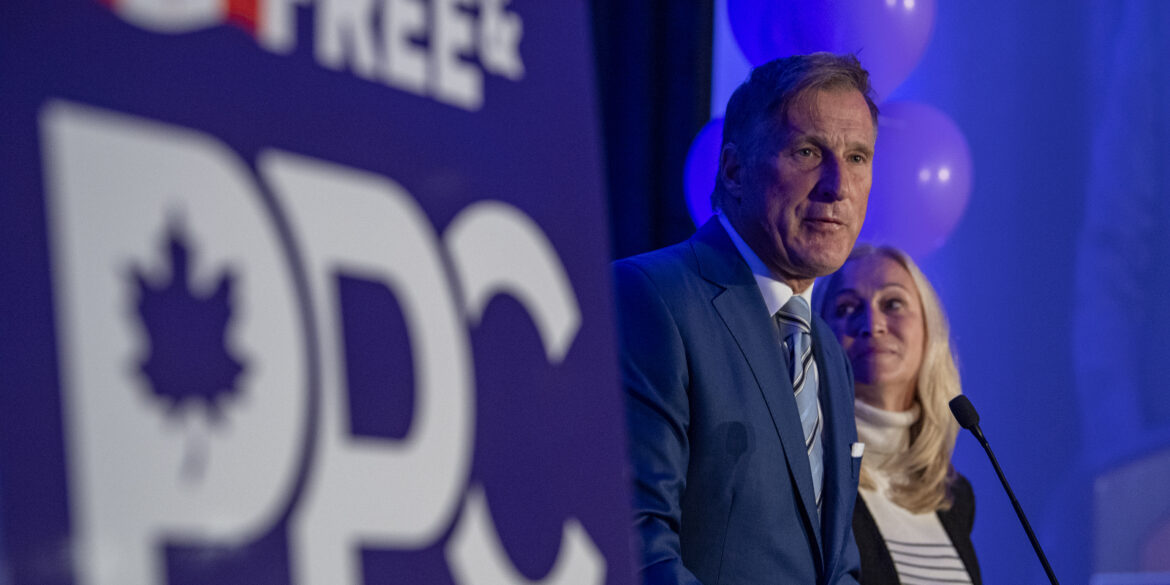
The rise of the staffers
By Stuart Thomson
In the wake of the four federal byelections, Carleton professor Jennifer Robson pointed out that all four winners, two Liberals and two Conservatives, are former political staffers.
Ben Carr is the son of the late former MP Jim Carr and was the director of parliamentary affairs for Melanie Joly. Anna Gainey, who won her race in Notre-Dame-de-Grâce–Westmount, is not only the daughter of former NHL great Bob Gainey but also a member of Prime Minister Justin Trudeau’s inner circle and a former president of the Liberal Party.
Branden Leslie, who will be the new MP for Portage-Lisgar ran Candice Bergen’s 2019 in the riding and worked previously as a legislative assistant. Arpan Khanna, Oxford’s new MP, previously worked for Jason Kenney, doing outreach to ethnic communities.
What this tells us about Canadian politics is an open question. Is politics a priesthood, only open to a select few that are already part of the exclusive club?
Or are staffers, who are generally obsessed with politics to an unhealthy degree, the only type of people who aspire to be members of Parliament anymore?
Local effects prevail, even as Liberal scandals dominate headlines
By Rahim Mohamed
Liberal insiders could have been forgiven for feeling a sense of foreboding heading into Monday’s federal byelections with the party’s numbers sliding amidst a seemingly unending series of scandals. Instead, the four (very different) races were a clear reflection of the old adage: “All politics is local”.
The evening’s tightest race, in Oxford, was overshadowed by a messy Conservative nomination battle. (Retiring incumbent MP Dave MacKenzie, a Conservative, said publicly that he’d be voting for Liberal David Hilderley). Conservative candidate Arpan Khanna (a close ally of party leader Pierre Poilievre) nevertheless cruised to a relatively comfortable seven-point victory over Hilderley. (MacKenzie blew out his Liberal challenger by more than 25 points in 2021). Meanwhile, PPC leader Maxime Bernier fell to defeat in Portage-Lisgar, one of Canada’s most conservative ridings (three-quarters of voters went for right-leaning Candidates in 2021). Bernier and victorious Conservative candidate Brandon Leslie traded barbs over the World Economic Forum and LGBT+ Pride in a heated campaign that, at times, resembled a Republican primary—Leslie promised to never attend the WEF heading into Monday’s vote.
It was a family affair in Winnipeg South Centre, where Liberal Ben Carr inherited the seat of his departed father Jim Carr (Chair of the Standing Committee on Public Safety and National Security before his death in late 2022). Liberal Anna Gainey took party stronghold Notre-Dame-de-Grâce—Westmount in the evening’s snooziest race.
Monday’s byelections tell us little about the general mood of Canadian voters as each of the races turned on local dynamics independent from national politics. It was a rather uneventful evening, but one that nevertheless reinforced the importance of local campaigns.

